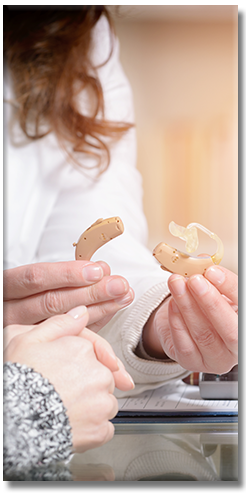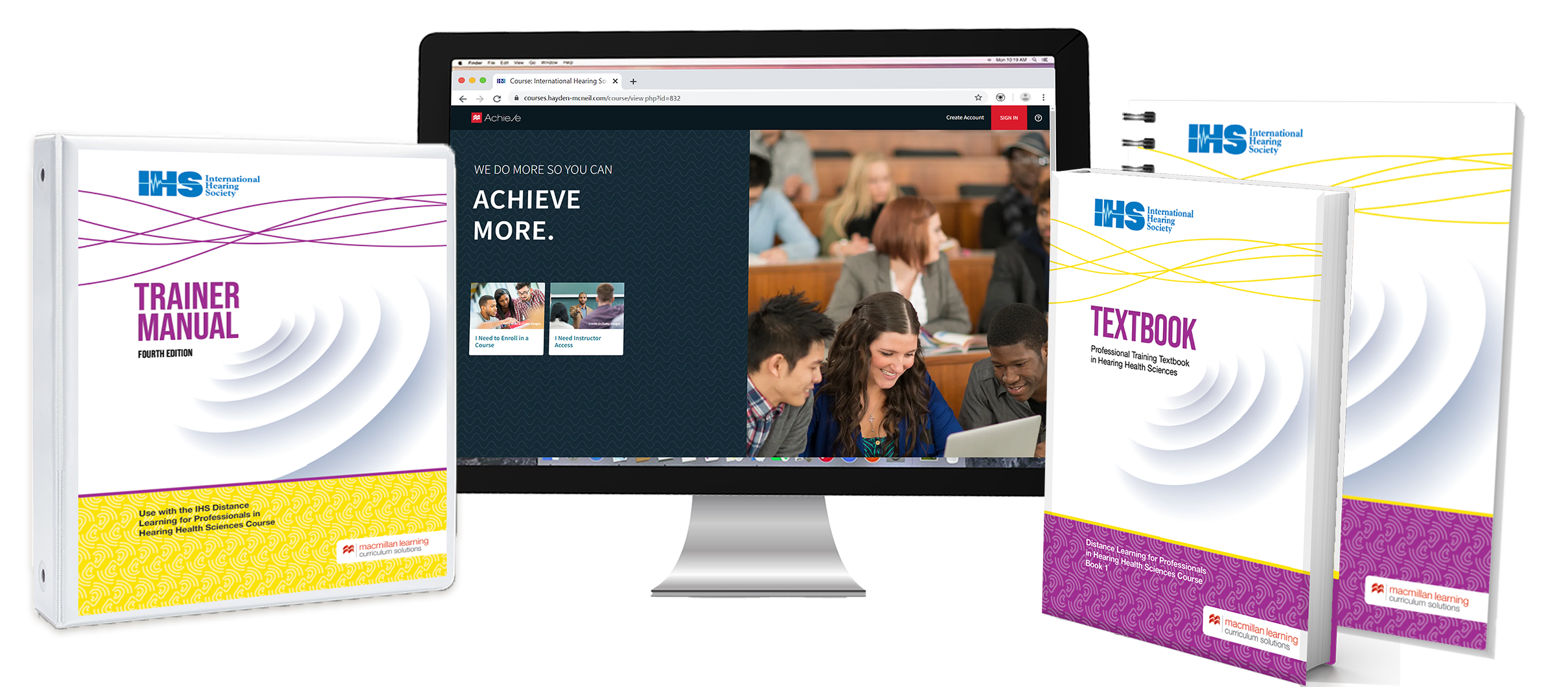Become a Hearing Aid Specialist
According to the U.S. Department of Labor, employment of Hearing Aid Specialists is expected to grow 8% or more by 2029, much faster than the average for all occupations. An aging population is anticipated to lead to greater demand for hearing healthcare services. Hearing aid specialists are finding employment in group or private practices.
 |
The Role of a Hearing Aid Specialist
Hearing Aid Specialists are allied health professionals who have the training, knowledge and experience required to address the amplification needs of individuals with hearing loss. The primary employment responsibilities include:
- Administering and interpreting tests of auditory function
- Recommending amplification options
- Making ear impressions
- Fitting and dispensing hearing instruments
- Verifying and validating hearing instrument fittings
- Counseling regarding hearing loss
- Providing aural rehabilitation including options for assistive listening devices
- Providing comprehensive post-fitting care
|
How to Prepare for Becoming a Hearing Aid Specialist
Use this handy Roadmap to Success to get a sense of the path to licensure, but be sure to contact your licensing agency for specific requirements in your jurisdiction. Professional preparation to become a Hearing Aid Specialist can be attained through two pathways:
The Workplace Training Approach
|
This approach, combining study and on-the-job training, is a more common pathway for entry into the dispensing profession. In many states and provinces, a training or apprenticeship period must be completed before a candidate is eligible to take the licensing examination(s). Through these apprenticeships, the knowledge and skill sets necessary for safe and effective clinical practice are acquired under the supervision of an appropriately licensed/registered hearing healthcare professional. Fundamental knowledge is gained through IHS’ standardized curriculum.
 |
IHS' Distance Learning for Professionals in Hearing Health Sciences course is the premier study program for aspiring hearing healthcare professionals. When paired with on-the-job training, the course primes qualified students with knowledge and helps prepare them for competency exams. Some states require or recommend use of the course for licensure as a hearing aid specialist.
|
|
|
OR
|
The Academic Training Model
|
| Academic training is available at a few colleges in the U.S. and Canada. Available college programs for Hearing Instrument Sciences include:
|
|
Department of Labor Certified Apprenticeship
The International Hearing Society has developed guidelines for the creation of hearing aid specialist apprenticeship programs. The guidelines, approved and released by the U.S. Department of Labor, are available for use by interested employers to establish a registered apprenticeship program. This is another approach to the workplace training model. The guidelines contain everything needed to establish an apprenticeship program and assistance is available from both your state apprenticeship agency and IHS. In addition to being a nationally-recognized, standardized approach to training, registered apprenticeships also carry potential financial incentives for both employers and apprentices. To learn more about the IHS-developed, DOL-certified apprenticeship, please visit the DOL-certified-apprenticeship page.
Licensing Requirements & Examinations
Each U.S. state and Canadian province has different rules and regulations. We encourage candidates to contact their state/provincial licensing agency for requirements in their area. In most jurisdictions, one or more competency exams are required.
Once a student or apprentice has completed all of the qualifications for licensure as determined by their local jurisdiction’s laws and regulations, they may take the examination(s) that ultimately grant their status as a practitioner. Many jurisdictions use the International Licensing Examination for Hearing Health Professionals (the “ILE”) for the written competency test.
Another tool used by many professional governing bodies (licensing boards) is a practical examination. This is a hands-on demonstration of the essential technical skills needed to practice as a hearing aid specialist. For jurisdictions that require both written and practical exams, candidates must pass each to demonstrate that they can competently and safely perform the duties of a hearing aid specialist.